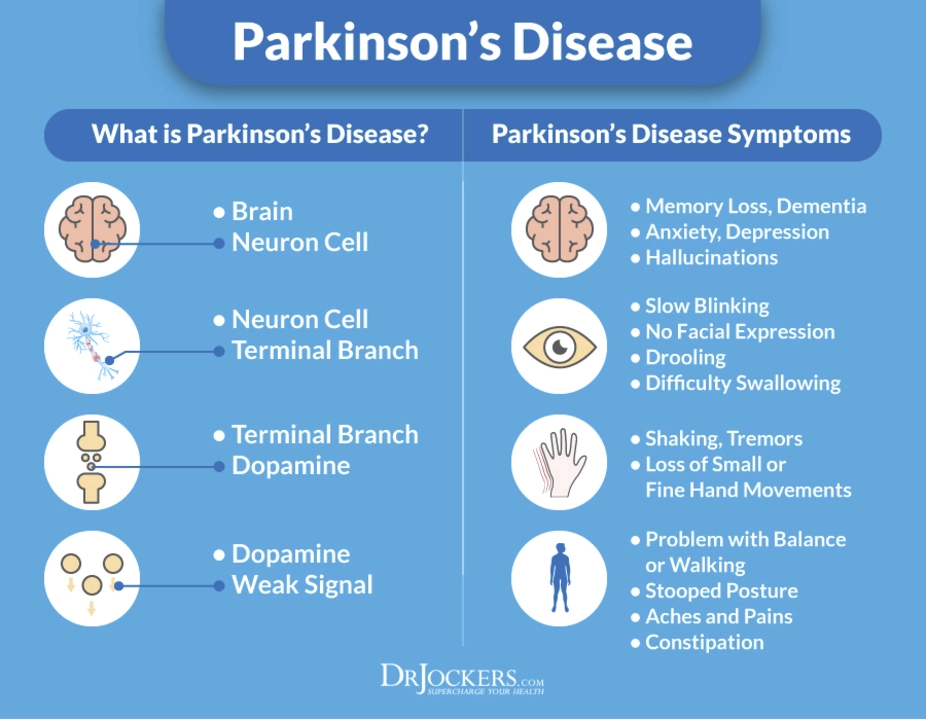Understanding Parkinson's Disease and Its Progression
Parkinson's disease is a progressive neurological disorder that affects movement and coordination. It occurs due to the gradual degeneration of nerve cells, or neurons, in the brain, which leads to a reduction in the production of dopamine. Dopamine is a neurotransmitter that plays a critical role in regulating movement, mood, and various other bodily functions.
As the disease progresses, symptoms like tremors, stiffness, and slowness of movement become more pronounced, affecting the quality of life of those suffering from Parkinson's. Currently, there is no cure for this condition, but various medications and treatments can help manage symptoms and slow down its progression.
Rasagiline: A Promising Treatment for Parkinson's Disease
Rasagiline is a medication that belongs to a class of drugs called monoamine oxidase type B (MAO-B) inhibitors. By inhibiting the activity of the enzyme monoamine oxidase B, rasagiline helps to increase the levels of dopamine in the brain, thereby improving motor function and reducing symptoms of Parkinson's disease.
Several clinical trials have demonstrated the effectiveness of rasagiline in managing the symptoms of Parkinson's disease, both as a standalone treatment and in combination with other medications. Due to its potential benefits, rasagiline has been approved for use in numerous countries around the world as a treatment option for Parkinson's disease.
Slowing Parkinson's Disease Progression with Rasagiline
One of the key goals in the management of Parkinson's disease is to slow down its progression and delay the onset of disability. Research has suggested that rasagiline may have neuroprotective properties, which means that it could potentially slow down the degeneration of neurons in the brain and delay the worsening of symptoms.
A number of preclinical studies have demonstrated the potential of rasagiline in protecting nerve cells from damage and promoting their survival. These findings have led to increased interest in the role of rasagiline in slowing Parkinson's disease progression and improving the quality of life for patients.
Evidence from Clinical Trials
Several clinical trials have been conducted to investigate the potential of rasagiline in slowing Parkinson's disease progression. One of the most notable studies is the ADAGIO (Attenuation of Disease progression with Azilect Given Once-daily) trial, which involved more than 1,100 patients with early-stage Parkinson's disease. The results of this study showed that patients who received rasagiline experienced a slower progression of symptoms compared to those who received a placebo.
Other trials have also reported positive outcomes in terms of symptom management and improvement in motor function. However, more research is needed to conclusively establish the long-term benefits of rasagiline in slowing down Parkinson's disease progression.
How to Incorporate Rasagiline into Your Parkinson's Disease Treatment Plan
If you or a loved one has been diagnosed with Parkinson's disease, it's essential to discuss the potential benefits of rasagiline with your healthcare provider. They will consider various factors, such as the severity of symptoms, overall health, and potential interactions with other medications, to determine if rasagiline is an appropriate addition to your treatment plan.
Keep in mind that the effectiveness of rasagiline in slowing Parkinson's disease progression may vary from person to person. Therefore, it's crucial to maintain open communication with your healthcare provider and report any changes in symptoms or side effects that you may experience while taking rasagiline.
Conclusion: The Potential of Rasagiline in Parkinson's Disease Management
In conclusion, rasagiline is a promising treatment option for Parkinson's disease that has been shown to help manage symptoms and potentially slow down the progression of the condition. While more research is needed to fully understand its long-term effects, current evidence suggests that rasagiline may play a significant role in improving the quality of life for those living with Parkinson's disease.
As a patient or caregiver, it's crucial to stay informed about the latest developments in Parkinson's disease research and treatment options, such as rasagiline. By working closely with your healthcare provider, you can create a comprehensive treatment plan that addresses your unique needs and helps you maintain the best possible quality of life.


Write a comment